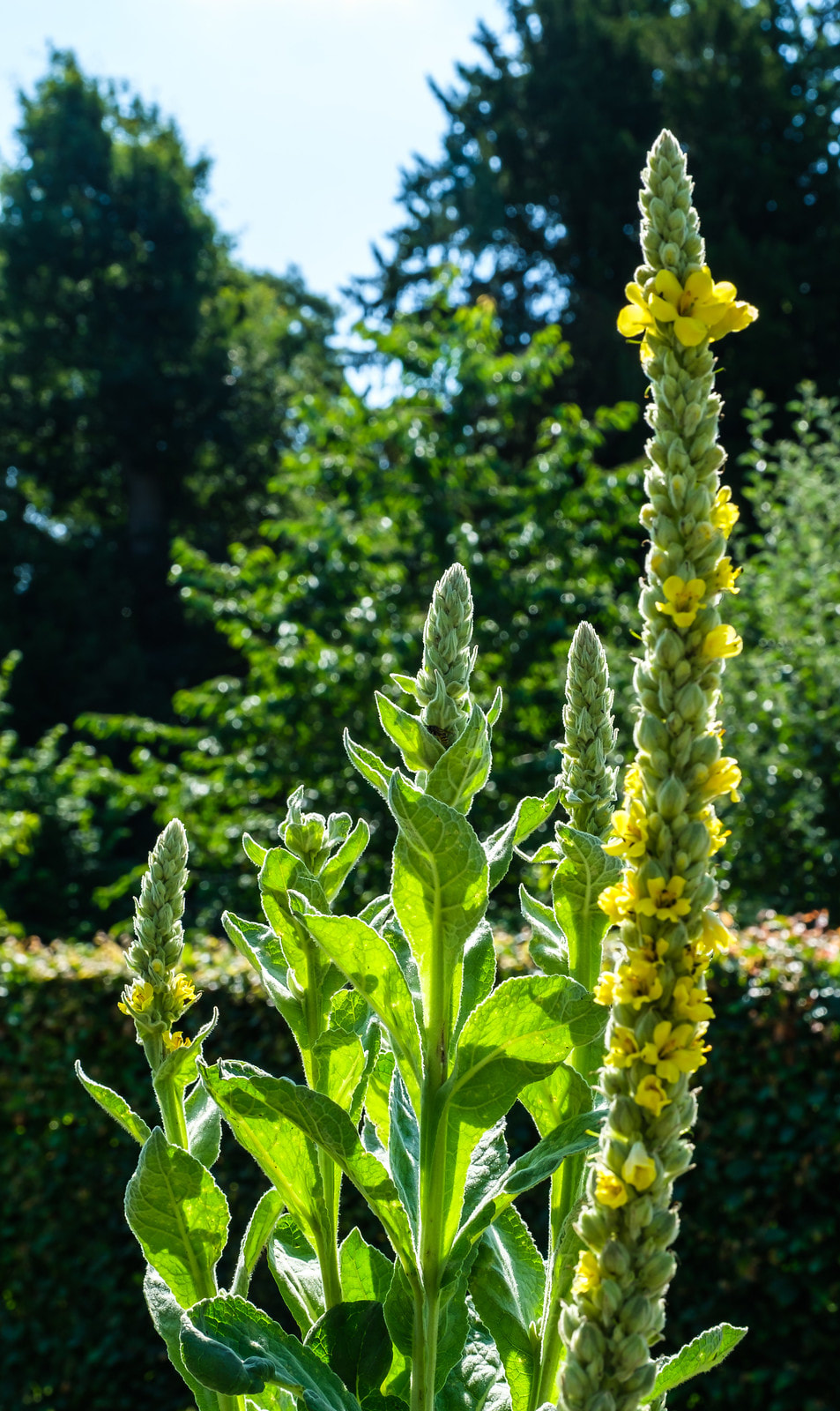|
Tis the season . . . for earaches. Thankfully, our fuzzy friend, mullein, is here to be our herbal superhero!
There are lots of causes of earaches and, luckily, one simple solution! Although, disclaimer: herbalism is always a holisitic science. We need to look at the whole person, what else is going on in our lives and bodies, realize there are some causes that may need a bigger or different fix, and every herb works a little differently for every person. But mullein can do a heck of a lot for a heck of a lot of conditions and people! Sometimes you can still find mullein alive and green this time of year, in little pockets of warm microclimates or warmer regions. I've found it growing and green through the coldest part of the year in some lucky years. Verbascum thapsus (mullein's botanical name) has a ton of medicinal benefits, especially the leaves, including being an expectorant and demulcent (moisturizing soother) for lung conditions, in tea, tincture, cough syrup, or when smoked (more expectorant than soothing this way). I've also had good success with taking the tincture of the root for sciatic pain. Today, though we're talking about soothing aches and infections in the ears. I usually employ the leaves for this, because they're easier to find during more of the year. Though you'll often find recipes for ear oil with the flowers, either works fine in my opinion. If you can't find mullein this time of year, your local health food store or herb grower will often have some for sale. The plant is unmistakeable, with its tall second year torch-like stalks (you can actually make candles, called hag tapers, from these), and up to two foot long leaves. I harvest the leaves close to the bottom of the plant that aren't laying on the ground, so they're not covered in dirt, or the flowers whenever they're open. I like to at least partially dry the plant material before I make an oil, depending on how I'm making it. The drier the plant, the less likely it will be to cause mold in the oil (though I'll tell you a special Herbalist's secret for preserving oils if you join us for the Herbal Home Remedies virtual course). The reason mullein is so great for ear oil is because it's supposedly antibacterial and antiviral, along with a soothing emollient, lymphatic (moving the lymph that can cause infection), and anti-inflammatory. Mullein is also super safe for just about everyone, including children, and the warm oil feels super nice in an achy ear. Super Simple Mullein Garlic Ear Oil Ingredients: 4 ounces olive oil 1 rounded tablespoon mullein leaves or flowers 1 clove garlic Heat the oil in a skillet over low to medium low heat. Most importantly, we don't want to burn the oil or cook the ingredients, just warm them enough to infuse the herbs. Once the oil is warm, add the mullein and garlic. Very lightly sauté for 2-5 minutes, just about a minute past when you can smell the garlic cooking. Strain the oil through a fine cloth into a dropper bottle. You can use the oil warm, or warm it slightly before use. Be sure, especially before applying to children's ears, that the oil isn't hot. Add a few drops in the infected ear, preferably while lying on side, and wait a few minutes for the oil to enter the ear canal while massaging around the ear. Wipe off any excess from the outer ear. Use as needed, or several times a day, for pain and infection. If pain persists, make sure to see a health practitioner. This oil may not last very long without a preservative; refrigerating it can extend the life a bit longer. Want to learn the more technical and in-depth ways to make your own herbal oils and the secret natural ingredient for preserving them? Join us for the Make Your Own Herbal Home Remedies Virtual Course, where you'll also get to learn to make teas, tinctures, salves, and tonics (herbs as food), starting January 6th! OR get the course FREE when you join Wildcrafted Herb School. If you try the recipe, or have any questions, let us know in the comments. Wishing you happy ears in the new year!
0 Comments
|
Want to help us continue to do this important work |



 RSS Feed
RSS Feed